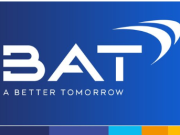The company’s annual report for the current financial year mentions a wholly-owned subsidiary, IndiVision, which has been licensed to set up a facility in Karnataka. This establishment will be extracting nicotine and manufacturing nicotine salts, whilst adhering to strict US and EU pharmacology standards.
ITC will be availing from the institutional capabilities of its century-old leaf tobacco business for this. The company’s cigarettes business took a hit during COVID, a pattern observed in most tobacco businesses. However, cigarettes were not ITC’s only business to be impacted by the pandemic, the company’s hotels business was also severely impacted.
Big tobacco shifting to safer alternative products
Meanwhile, the world’s biggest tobacco companies are also heavily investing in safer alternative products. Last April, Philip Morris International (PMI) told investors that it had posted net revenues of $7.5bn in the quarter, up 6% on the same period a year ago, with smoke-free products accounting for 28% of total net revenue. Global shipment of heated tobacco units was up by 29.9% at 21.7bn units. In Europe, the tobacco manufacturer shipped 6.4bn Heets for Iqos in the first quarter of 2021, up from 4.6bn in the same period of 2019, with Germany and Italy being behind the figures.
While British American Tobacco (BAT) is aiming for 50 million users of their non-combustible nicotine products by 2025. Earlier this year, it reported having attracted 1.4 million new users of vaping and heated tobacco products and nicotine pouches in the first quarter of 2021, as it seeks to make cigarette alternatives profitable by 2025.
Read Further: Business Standard












